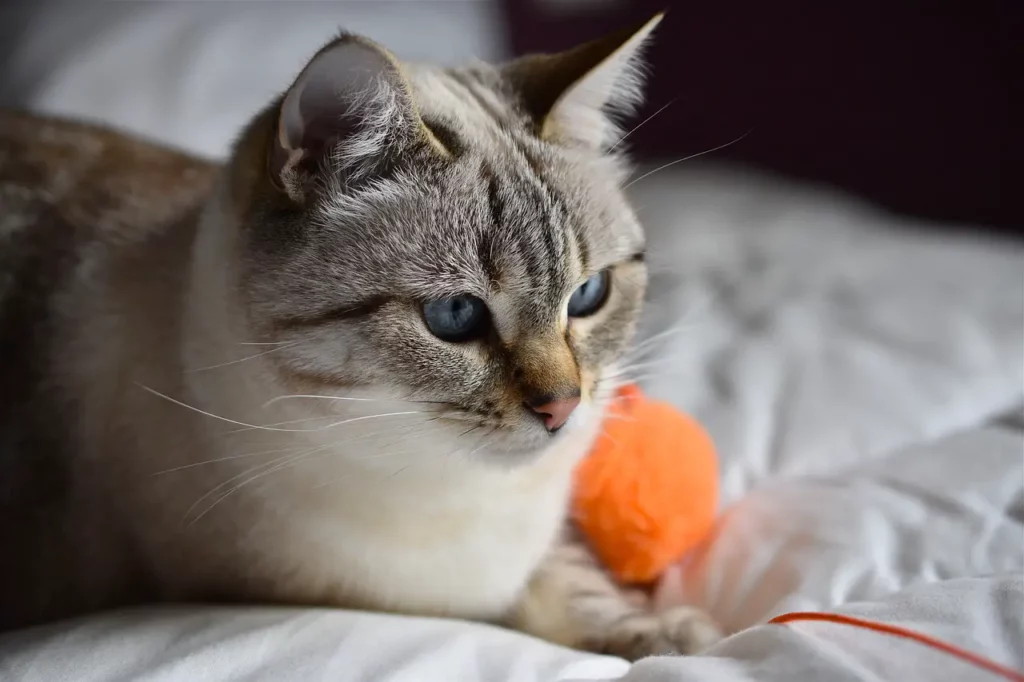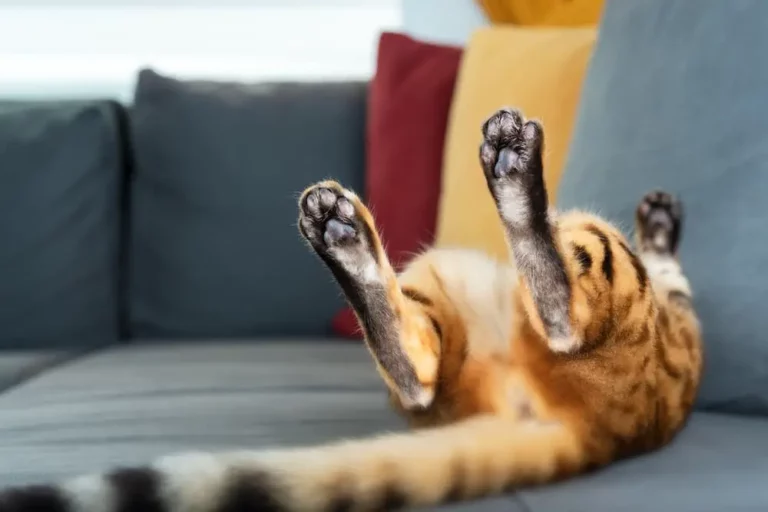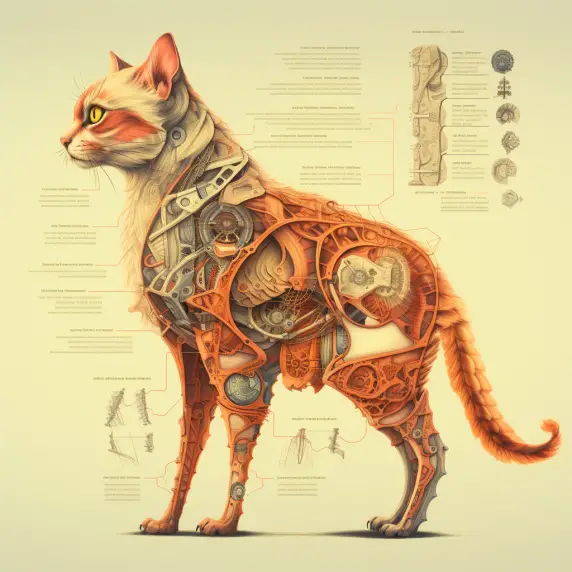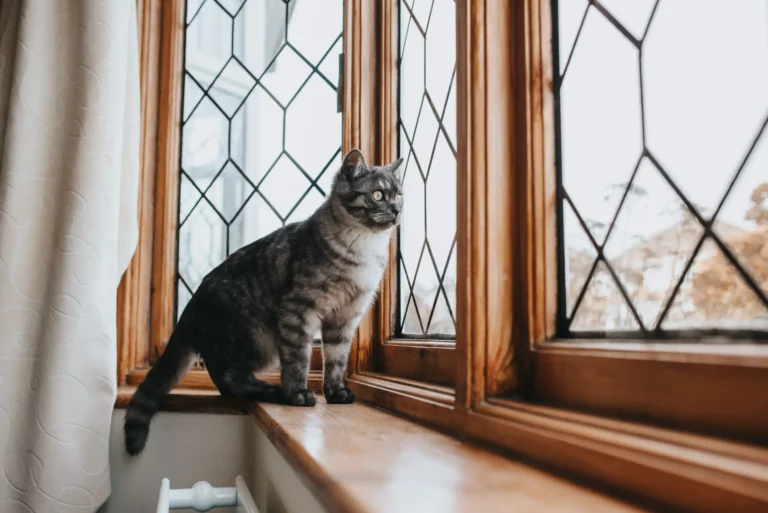Can Cats Have Autism? A Look Into What the Research Says About Autistic Cats
This article delves into the question of whether cats can be diagnosed with autism.
While it is difficult to diagnose autism in cats, similarities have been observed between cats exhibiting certain behaviors and humans with autism.
This article explores the signs of autism in cats and discusses possible causes of the condition. It also touches on the question of whether cats can have ADHD.
While there is no scientific evidence that cats can have autism, this article provides information on five autistic-like tendencies that cats can display.
If you suspect your cat may have autism, it is important to consult with a veterinarian for an accurate diagnosis and treatment plan.
Key takeaways
Autism in humans is a complex neurological condition.
There is no scientific evidence to prove cats can have autism.
Cats may exhibit behaviors similar to autism symptoms, but these are often linked to stress, anxiety, or medical conditions.
Proper diagnosis and treatment by a veterinarian are essential for resolving behavioral issues in cats.
What is Autism and Can It Affect Cats?
Autism, sometimes referred to as autism spectrum disorder (ASD), is a type of neurological and behavioral condition that can have a significant impact on social interactions, communication and behavior.
Diagnosing ASD in cats is difficult because the disorder presents differently in every animal, but it is possible for cats to experience symptoms similar to those seen in humans.
Signs of ASD in cats may include reduced desire for social interaction, impaired communication, repetitive behaviors and hypersensitivity to sound and touch.

Can Cats Have Autism?
While cats may display some behaviors that could be similar to those of autism in humans, there is no scientific evidence that cats can actually be diagnosed or suffer from autism.
However, cats do have the ability to experience anxiety and depression, so if your cat is exhibiting certain behaviors, it’s worth consulting with a veterinarian to make sure they’re healthy and happy.
Can Cats Have ADHD?
While cats don’t have ADHD in the same way humans do, some cats may display behavior that looks like attention deficit hyperactivity disorder.
These behaviors, such as increased activity, restlessness and difficulty concentrating, can be caused by environmental stressors or medical conditions.
If you see these symptoms in your cat, consult with a veterinarian for an accurate diagnosis and treatment plan.

5 Autistic Tendencies in Cats
While cats are not known to develop autism as deeply as humans, they can display some autistic-like behaviors.
It’s important to identify these traits in your cat, so you can make sure they are properly cared for.
Here are five key signs of autism in cats and how to distinguish them from mere personality quirks.
1. Low Social Skills and Interactions
Your cat may not seem interested in interaction with other people or animals.
They may also avoid collaborative activities, such as playing and exploring social environments.
Autistic cats (or more accurately, cats that display characteristics of someone with autism) may prefer solo play and other behaviors that are commonly unheard of in cats.
This could mean they show little to no interest in things such as playing, petting, cuddling and even responding to their own name when called.
2. Unusual Vocalizations
One of the most common signs of autism in cats is unusual vocalizations.
Autistic cats may meow louder and longer than other cats or make strange and varied noises that are outside the normal range for cat vocalizations.
They may also make repetitive chirping sounds, instead of typical feline meowing.
3. Repetitive Behaviors
Repetitive behaviors are one of the most apparent warning signs that your cat may have autistic-type tendancies.
These behaviors include chasing their tail, repetitively licking a spot on their body, facial rubbing and similar behaviors.
These kinds of behaviors are especially common in cats with feline autism spectrum disorder (FASD), which Kathy Hoopmann argues in her book All Cats Are on the Autism Spectrum that owners may also observe their cat stimming – i.e., performing repetitive motions with their paws, ears or tails.
4. Changes in Eating and Sleeping Habits
Autistic traits in cats can also present itself in a number of subtle changes in eating and sleeping habits.
Common signs include missing meals, difficulty adjusting to sudden changes in diet or suddenly avoiding certain foods, seemingly excessive amounts of sleep and difficulty falling asleep.
5. Over-Sensitivity or Lack of Sensitivity to Stimulus
One of the key signs of autism in cats is an over-sensitivity, or lack of sensitivity, to certain stimuli.
For example, a cat may become overly agitated and vocalize when exposed to loud noises.
Or conversely, a cat may not respond at all to such stimuli even if it’s normally audible and visible in other cats.
An autistic cat may also appear unduly excited or scared when it’s exposed to new people or strange objects.

Possible Causes of Cat Autism
Although the exact cause of autism in cats is unknown, there are a few possible explanations.
Genetics might play a role, as some traits observed in autistic cats appear to run in families.
Environmental factors such as noise pollution and exposure to toxic chemicals or drugs may also be contributing factors.
Additionally, it’s been suggested that a diet lacking essential nutrients could lead to autism-like behaviors in cats.
Testing for Cat Autism
In order to determine whether or not your cat might have autism, it’s important to visit the vet for an accurate diagnosis.
Your veterinarian can assess your cat’s behavior and ask you questions in order to determine whether certain behaviors could indicate an autism spectrum disorder.
Typical testing for cats involves a physical examination, questionnaire about their habits, and possibly blood work or a urine sample.
Blood work may be used to check for any underlying medical conditions that might be causing the behaviors associated with autism.
Treatment and Management Options for Cat Autism
Once your veterinarian has determined that your cat may have autism, you will be able to discuss treatment and management options for the disorder.
Treatment for cats with autism typically includes behavior modification, environmental enrichment, and possibly certain medications.
Behavior modification and environmental enrichment involve trying to increase the amount of positive behaviors that your cat displays, while reducing unwanted behaviors from occurring.
Medications may also be used to help reduce anxiety and other symptoms associated with autism, such as hyperactivity or aggression.
How to Help Autistic Cats Cope with Their Symptoms
Caring for an autistic cat requires understanding of how to recognise and adjust to their unique set of needs.
Autistic cats can be wonderfully loving companions, but they may require more patience and effort from you in creating a safe and calming environment.
Here’s a few methods for caring for your cat’s needs, encouraging positive social behaviour, and helping them feel safe in their home.
Minimise Distractions in Your Home
Autistic cats often struggle to cope in an environment with too much stimulation.
To reduce their stress levels and help them feel safer, try minimising the amount of loud noises, sudden movements and unfamiliar faces that your cat experiences.
This means discouraging visitors from bringing in pets, securing windows and doors when possible, and refraining from playing loud music or television shows.
Ensure that your cat has a safe spot they can retreat to when feeling overwhelmed or anxious.
Promote Sensory Stimulating Environments
Autistic cats benefit from environments rich in sensory stimulation.
Growing potted cat grass, encouraging them to play with toys, setting up hiding spots, and providing scratching posts are all great ways to make the living environment more fun and engaging for your cat.
If possible, try investing in a pet bubble wall or water fountain to give your pet something to exercise their senses on each day.
This can help refocus their energy, promote focus and bring down stress levels.
Provide Opportunities for Alerting Behaviour
Cats with autism tend to struggle with changes in routine, so it’s important to help them adjust to new situations.
Setting up alerting behaviour opportunities can help them become more comfortable dealing with the unknown.
For example, calmly introducing new people or experiences and establishing reward systems for adapting to them can break down walls of uncertainty and anxiety that autistic cats build up around unfamiliarity.
Focus on Positive Reinforcement and Reward Systems
Positive reinforcement and reward systems are great ways to encourage your autistic cat to build positive associations with unfamiliar experiences.
When introducing a new person or activity, make sure the cat is comfortable and relaxed.
Set up rewarding opportunities like treats or special attention to help them adjust.
Add other rewards that can help your cat explore, feel safe and develop a sense of security such as scratching posts and toys.
Rewarding desired behaviours, rather than punishing undesired ones, can create a more accepting space for your autistic cat.
Provide Adequate Time and Space for Exploration and Activity
Cats are naturally curious and active animals, so providing adequate time and space to satisfy natural instincts is essential for an autistic cat’s health and wellbeing.
Designate areas of the house that provide safe spaces with low stimuli. Rotate toys often to reinforce exploration and encourage playtime activity.
Invest in interactive items such as feather wands or treat puzzles to help keep your cat occupied when bored and stimulated during active periods of the day.
Final Thoughts on Autism in Cats
Research on autism in cats is limited, making it almost impossible to diagnose the condition in felines.
Nevertheless, some experts and pet owners have noticed similarities between cats exhibiting certain behaviors and autistic humans.
Symptoms may include repetitive actions, avoidance of touch or eye contact, and reduced social interaction.
Although no scientific evidence exists to support the notion that cats can be diagnosed with autism, some behaviors may resemble those of autistic humans, including unusual vocalizations, repetitive behaviors, changes in eating and sleeping habits, and over-sensitivity or lack of sensitivity to certain stimuli.
Consultation with a veterinarian can help determine if your cat is healthy and happy, and if certain behaviors could indicate an autism spectrum disorder.
Leave a comment if you have any questions or just general feedback on the article.
Thanks for reading!
Frequently Asked Questions
Can cats have special needs?
The answer is a definite yes!
Any cat with a disability, such as the loss of a limb, neurological or mental impairments, or any other chronic illness, can and does require extra care.
Special needs cats may need help with daily activities such as using the litter box or getting groomed.
Additional medical treatment or dietary requirements may also be necessary.
Can animals be autistic?
Although some similarities may exist between autism symptoms in humans and non-human animals, it is difficult to determine whether animals can actually develop autism since a diagnosis requires an understanding of behavior that is unique to humans.
As such, any behaviors that mimic the signs of autism are likely due to a different diagnosable condition in animals.
Can cats have mental illness?
The answer is yes, cats can experience psychological and mental disabilities.
Common issues such as fear aggression, anxiety, feline stress cystitis, seizure disorders, and compulsion disorders are all conditions seen in felines.
Can cats have sensory issues?
While cats may show decreased responsiveness or clumsiness, this is usually caused by a different underlying health issue.
For example, advanced kidney or liver disease, diabetes, cerebellar hypoplasia, exposure to toxins or even brain tumors can all cause disturbances in a cat’s sensory system.
If you notice these types of changes in your cat’s behavior, it is important to bring them to the vet right away.
Additional sources:
- “All Cats Are on the Autism Spectrum” by Kathy Hoopmann – This book argues that feline autism spectrum disorder (FASD) exists and provides information about the symptoms, behaviors, and strategies for supporting cats with FASD.
- “The Science of Autism” by National Institute of Mental Health – This webpage provides general information about autism and its symptoms.
- “Anxiety and Compulsive Disorder in Cats” by PetMD – This article discusses the similarities and differences between cats and humans with ADHD and provides information on the possible causes and treatments for ADHD-like behaviors in cats.

![Why Does My Cat Keep Pooping Outside the Litter Box? [5 Things You Can Do]](https://www.warmlypet.com/wp-content/uploads/2023/01/senior_cat_not_using_litter_box-1024x548-1-768x411.webp)




